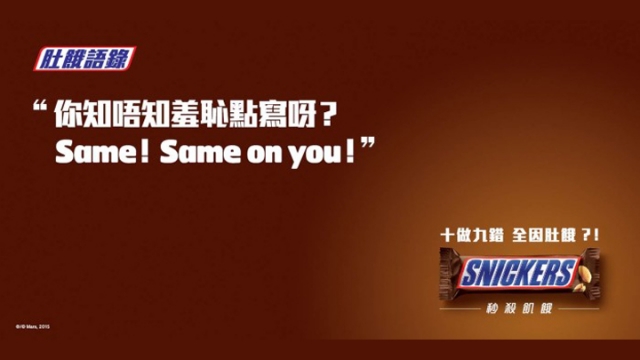In recent years, people and businesses have felt an increasing need to be PC – and we’re not talking about computers. In these touchy times, the slightest deviation from “Politically Correct” terminology and themes can lead to a huge public backlash.
Remember that infamous Pepsi short film with Kendall Jenner from April 2017? The video generated so much negative feedback that Pepsi took down the video and issued a public apology. Was it social insensitivity or just political correctness running unchecked? Read on to find out more…
This Pepsi video depicts model and television personality Kendall Jenner abandoning a photoshoot midway to support a peace rally.
Got context?
If you watched the Pepsi video and have trouble seeing why it enraged viewers, consider the context of what was happening in the United States during the video’s launch.
At the time, large-scale protests from the Black Lives Matter movement had gained significant traction following years of fatal police-involved deaths.
Given the video’s depiction of sign-toting crowds and the song’s lyrics about joining “the movement”, Pepsi’s short film appeared to reference the ongoing protests. Playing off contemporary news or trends is a common marketing technique, but what angered viewers was how the video seemingly trivialised the protests by depicting Jenner bravely walking up to riot police alone – a clear reference to Ieshia Evans during the Baton Rouge protest – and then single-handedly diffusing the standoff by sharing a sugary drink.
Snickers pulled off a widely successful newsjacking campaign by attributing slipups from notable Hong Kong influencers and politicians to hunger – this one mocks a quote from former Legislative Council member Christopher Chung during a discussion on the Guangzhou-Shenzhen-HK Express Rail Link.
Newsjacking, the process of leveraging trending news to elevate awareness of a brand or message, provides marketers with a convenient and contemporary way of attracting attention. Despite good intentions of promoting peace and harmony (through the power of Pepsi), the video’s writers and producers ultimately failed to recognise the magnitude of the Black Lives Matter movement and downplayed its significance. To avoid a similar mistake when using this technique, first ask yourself, “Am I showing sufficient respect to the subject matter?” and more importantly, “Is this subject too sensitive right now?”.
Terminology part 1: The basics
We label ourselves, people, animals - and everything in between - on a daily basis. Labeling helps us to quickly discern between the countless objects and living beings in our daily lives. To some, the labels we use are simply a name or a description. But to others, they’re a cause for offense.
In recent news, companies like Swedish furniture giant Ikea and several US airlines took heat for listing Taiwan, Hong Kong and Macau as individual countries instead of under the officially sanctioned “one China” principle – resulting in boycotts by Chinese consumers, and even fines in some instances (see Japanese retailer MUJI). Whether you agree or disagree with China’s reasoning, it’s undeniable that the (alleged) use of politically incorrect labelling can result in potential business repercussions.
Cardiff Metropolitan University in Wales issued a guide that banned lecturers from using any potentially “offensive” terms.
As copywriters, the language we use has changed drastically in recent years to reflect more politically correct terminology – with gender-related terms being one of the most predominant. Now, it’s common practice to use the “business person” instead of “businessman” in order to address all business practitioners equally. Unless you’re marketing something clearly aimed at a specific gender (e.g. male pattern baldness miracle cures), we would suggest sticking to gender-neutral language out of respect for modern sensitivities.
Terminology part 2: To be or not to be precise, that is the question
If you take a look at news articles from the United Nations or humanitarian organisations like Doctors Without Borders, you’ll see that the term “poor” is rarely used to describe a person or a community (with the exception of some direct quotes). Instead, you’ll see it replaced with a slightly more dignified “impoverished” or “living in deprived conditions”. While the softening of language in favour of political correctness is now the norm, is it something we should adhere to all the time?
According to The Washington Post’s Alyssa Rosenburg, there is a danger in doing so. She points out that these substitutions fell into the “trap of defining a person by the characteristic in question” and ultimately still failed to “confer dignity”. “‘A person who lacks advantages that others have’ is no more precise than ‘poor’,” argues Rosenburg. “There are meaningful distinctions between someone who is ‘destitute’ and someone who is merely ‘pinched’.”
HuffPost editor Nick Baumann on the politically correct (albeit confusing) substitute for “obesity”.
Furthermore, Rosenburg also notes that many politically correct substitutes are unnecessarily cumbersome – like replacing “obese” with “a person of size”. At Wordsmith, we believe in brevity. But is it worth sacrificing clarity to avoid offending sensitive readers?
Precision is essential when you’re trying to inspire readers to act. Take a look at the following calls to action. Which one feels more compelling?
· Help these food-deprived communities now.
· Help these disadvantaged communities now.
Hunger is a feeling we can all relate to (at varying levels), and the line evokes immediate sympathy – and in some readers, even a physical reaction. In the second example, “disadvantaged” is a vague word – it could mean difficulties with finances, poor housing conditions, problematic government policies, etc. In this case, dulling linguistic precision with a soft PC blanket weakens the impact of the message, and may even leave readers confused.
While political correctness doesn’t show any signs of disappearing soon, as professional copywriters we’ve always found it best to express messages in a clear way that avoids ruffling any feathers. It may take some verbal kung fu to craft the perfect phrase, but that’s what Wordsmiths are for…




